Laurier facilitates mutually-supportive relationships with alumni, other educational institutions, government, Indigenous communities, industry, and the not-for-profit sector.
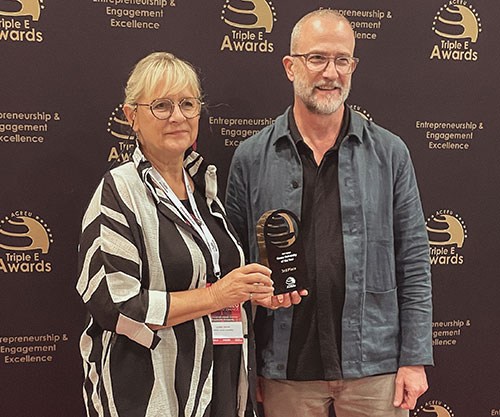
Laurier won the People’s Choice Award for the EDI Community Engagement Initiative of the Year at the 2023 Global Entrepreneurship and Engagement Excellence Awards in Higher Education. The ‘Triple E Awards’ acknowledge the contributions of universities in their communities. The award recognized Laurier’s work in partnership with Indigenous communities and the Government of the Northwest Territories to address complex challenges these communities are facing due to rapid climate change. Laurier also placed third in the Green University of the Year category.
In summer 2022, Laurier’s Brantford campus further cemented itself as a community anchor, opening the Laurier Hub for Community Solutions. This hub acts as an intake point, connecting community partners to faculty and student expertise at Laurier to assist in projects. The Hub for Community Solutions provides an access point for the community to all of Laurier’s locations, campuses and 23 research centres.
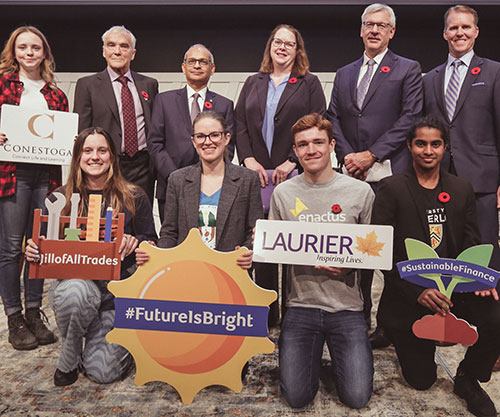
In May, the Lazaridis School of Business and Economics, in partnership with CN and the Milton Chamber of Commerce, hosted the annual World Class Supply Chain Summit in Milton. The summit includes two student co-chairs who help to organize the event with faculty at Laurier and executives at CN. The event brings together leaders from academia and industry and provides students an opportunity to engage in current industry conversations.
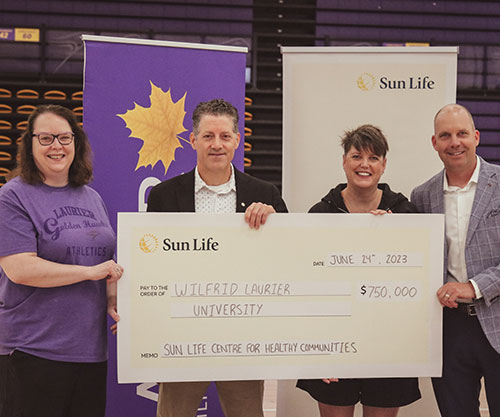
In fall 2022, RBC Foundation announced a new partnership with Laurier to support new programming in the area of climate change management. RBC Foundation’s gift of $850,000 through its Future Launch program will support experiential learning, research and teaching in the Faculty of Science with the goal of preparing students for critical emerging careers in climate change management.
In June 2023, Sun Life committed $750,000 over five years to support and expand the Sun Life Centre for Healthy Communities. The community outreach program, delivered by faculty, staff and students in Laurier’s Department of Kinesiology and Physical Education, provides free or low-cost physical activity programming for high-priority youth. This latest investment from Sun Life will increase investment in tailored programming and outreach to equity-deserving groups and expand the programming beyond the Kitchener-Waterloo community to Brantford, with a specific aim to engage Indigenous youth in the region.
Laurier excels at creating a culture of engagement that develops the whole person and builds reciprocal community relationships by fostering a highly personalized, equitable, diverse, and inclusive community in which all members can experience the powerful sense of belonging that has distinguished Laurier throughout its history.

The Government of Canada recognized Laurier as a Dimensions institution at the Construction stage in spring 2023. The Construction designation recognizes that Laurier is strategically addressing equity, diversity and inclusion (EDI) in a coordinated way, has engaged in critical self-assessment and reflection, and has developed and implemented an action plan. Since 2019, Laurier has been a member of the Dimensions Pilot Program, co-developing a program to address systemic barriers and inequities in Canadian postsecondary institutions and the research ecosystem.
In fall of 2022, Laurier launched its first Strategic Plan for Equity, Diversity and Inclusion with unanimous support from the university Senate and Board of Governors. The Strategic Plan for EDI makes a number of recommendations for building a more inclusive and equitable community at Laurier. In 2023, the Office of the Associate Vice-President: EDI will begin implementing priority areas under the direction of the interim Associate Vice President: EDI.
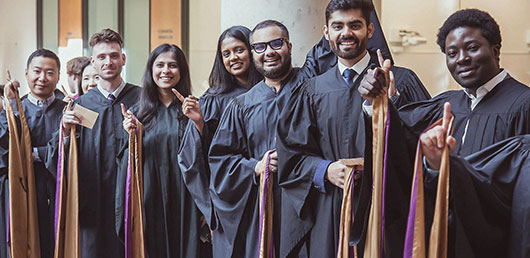
In the fall of 2022, the Equity, Diversity, Inclusion and Indigeneity Coalition within Laurier’s Faculty of Education hosted 50 equity-deserving high school students from Waterloo Region for a day of presentations, panels, tours and workshops. The community outreach was designed to inspire secondary students to pursue careers in education. The Coalition has planned for this to become an annual event, with the next being planned for fall 2023.
In February 2023, the Laurier Association of Black Students invited black high school students in the Kitchener-Waterloo and Cambridge area to the Waterloo campus to promote higher education. Students attended workshops and a keynote from Laura Mae Lindo, Kitchener’s first Black member of provincial parliament.
Waterloo Brewing and Mammoth Mug, two Waterloo-based companies, committed $447,500 in summer 2022 to support athletics and athletic financial awards. This support will help Laurier’s Athletics and Recreation Department recruit and retain athletes from equity-deserving groups.
Laurier is pursuing enhanced and accelerated initiatives to integrate Indigenous knowledges and practices across the university.
In fall 2022, under the guidance of the Office of Indigenous Initiatives, Laurier launched a new process to verify Indigenous identity confirming eligibility for designated Indigenous staff, faculty and student opportunities at Laurier. Developed in consultation with the Indigenous Education Council and Indigenous Faculty Council at Laurier, the new process will help mitigate Indigenous identity fraud and ensure opportunities designated for Indigenous peoples are awarded to the people for whom they are intended.
Laurier launched its first Indigenous Strategic Plan in June 2023, with unanimous support from the University Senate and Board of Governors. The plan provides a pathway for creating an inclusive university community that incorporates Indigenous knowledges, perspectives and experiences into the fabric of the university. Drafted by Dr. Darren Thomas, associate vice-president: Indigenous Initiatives, it aligns with the Truth and Reconciliation Commission’s Calls to Action numbers 10, 11, 16, 62 and 65.
In spring 2023, Ojibwe artist Michael Cywink was selected to create an outdoor mural on the southwest wall of the library on Laurier’s Waterloo campus. Throughout the summer of 2023, he hosted engagement sessions for both the Laurier and broader communities to learn about the project and participate in the creative process. The public mural project celebrates Indigenous art and culture, serves as a catalyst for creative and cultural engagement, and expresses Laurier’s commitment to reconciliation, decolonization, and Indigenization.
Dr. Keri Cheechoo, assistant professor of Indigenous Studies, is Laurier’s first Grundy Indigenous Scholar, a faculty position created to retain top Indigenous scholars, enhance Indigenous knowledge-sharing, and foster relationships with Indigenous communities. Cheechoo’s scholarship focuses on Indigenous women’s experiences, as well as policies and practices of forced sterilization. She is also a published poet and combines this with her scholarship to enhance student learning in the classroom. On July 1, 2023, Dr. Cheechoo began a three-year term as Chair of the Department of Indigenous Studies, Law and Social Justice.
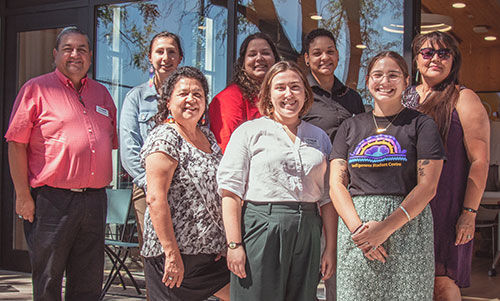
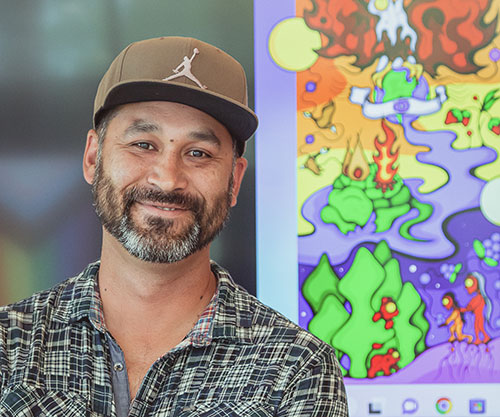
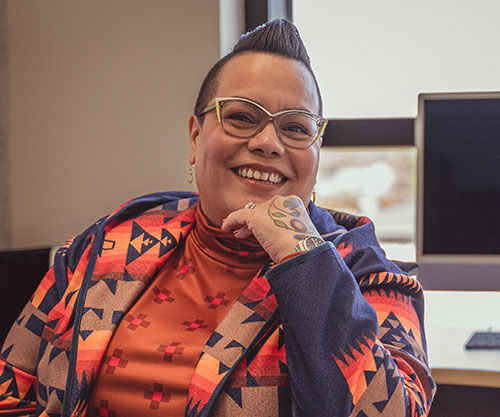
Laurier excels at creating a culture of engagement that develops the whole person and builds reciprocal community relationships by facilitating the expression, testing, and challenging of a range of perspectives and ideas grounded in reason, evidence, and frameworks of knowledge and creativity.
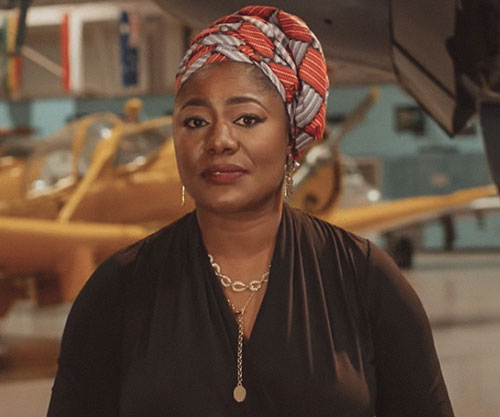
The Balsillie School of International Affairs launched a Migration Storytelling series in May 2023 to showcase international filmmakers, authors and musicians as they shared stories of the journeys that made an impact on their lives. The series, open to the public, kicked off with the screening of a documentary film by Kitchener-based director and producer Angela Onuora called Operation Lights Out: The Story of CANAIRELIEF. The documentary tells the story of Canadians who played a key role in 1969, saving more than one million lives during the Biafran War.
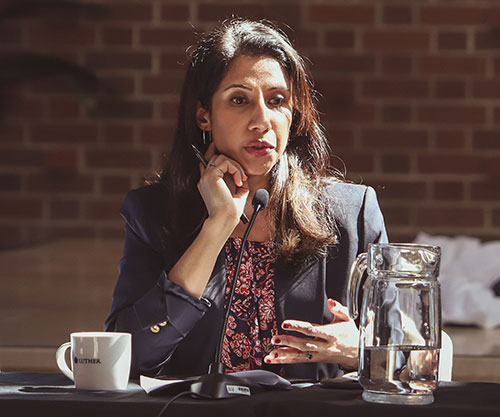
In March 2023, Laurier’s Department of Political Science hosted a panel discussion among former federal cabinet minister Lisa Raitt; Ian Brodie, former chief of staff to prime minister Stephen Harper; and Sabreena Delhon, executive director of the Samara Centre for Democracy. The discussion was moderated by renowned author and journalist Paul Wells. The event, open to the public, examined the centralization of power in Canadian politics and the extent to which it is undermining democracy and fueling polarization in political discourse.
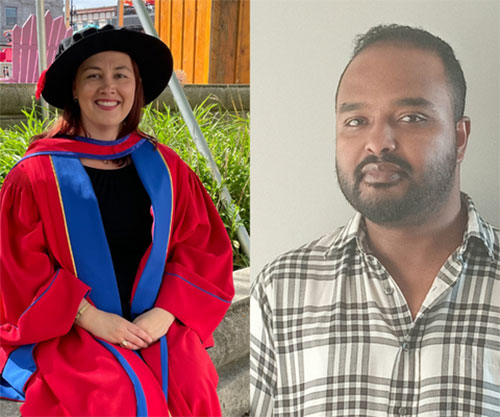
In fall 2022, Laurier welcomed two postdoctoral fellows to begin a public history initiative exploring the legacy of Sir Wilfrid Laurier and the institutional history of the university. Over two years, Drs. Tedla Desta and Katelyn Arac will take a deep dive into primary and secondary historical sources including books, newspapers, policy papers, legal documents, and speeches, and engage with the Laurier community on their findings. In the winter of 2023, Laurier’s former associate vice-president of equity, diversity, and inclusion, Dr. Barrington Walker, hosted Desta and Arac in a fireside chat where they shared some of their preliminary work with the Laurier community. In the 2023–2024 academic year, the Laurier community can expect to see more opportunities to engage with the project.
Laurier excels at creating a culture of engagement that develops the whole person and builds reciprocal community relationships by increasing internationalization of the university to cultivate global citizens with strong intellectual competence.
Laurier’s first International Education Studies class walked across the stage at spring 2023 convocation. The joint Faculty of Arts and Faculty of Education program – a first of its kind in Canada – offers students a pathway to teach in international schools, pursue education-related work in international development, or be more globally competent when teaching in Canadian schools. The program integrates education with global studies to foster awareness and intercultural understanding among students, who study teaching philosophies and approaches specifically for international settings.
During a time of growing humanitarian crises and displacements due to conflict, students involved in Laurier’s International Students Overcoming War (ISOW) club welcomed more than 200 delegates from 20 countries to a conference held in spring 2023. The Students as Partners conference was hosted in partnership with the United Nations High Commissioner for Refugees (UNHCR) and explored how students can lead in finding solutions to humanitarian crises in partnership with institutions of higher education. The three-day conference featured workshops and plenary sessions, and kicked off with a keynote speech from peace activist Kim Phuc Phan Thi. Kim Phuc, known as ‘the girl in the picture’, is the subject of one of the most haunting images of the Vietnam War. She opened the conference with a message of peace and hope.
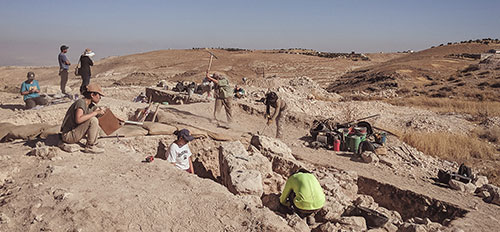
Students in the Archaeology and Heritage Studies program attended field schools abroad, immersing themselves in new cultures and communities while gaining hands-on experience in archaeology. The field school in Jordan, run by assistant professor Dr. Debra Foran, brought 20 Laurier students to the Town of Nebo Archaeological Project. A new field school in Greece, run by associate professor Dr. Scott Gallimore, will start at the ancient site of Sikyon. Students will attend in summer 2024. As part of both programs, students receive training in excavation and methods of laboratory analysis.
In the Department of History, Laurier students took part in a 13-day field course in Poland to learn about the Holocaust, led by associate professor Dr. Eva Plach. In the course, Into that Darkness: Poland, World War Two, and the Holocaust, students visited museums, former ghettos, former death camps and memorial sites, meeting with curators and educators who are working to ensure the history of the Holocaust is preserved.
Laurier excels at preparing people for whatever challenges the future brings by connecting research, scholarship and creative activity with communities and across disciplines to address the most pressing local and global challenges.
Dr. Homa Kheyrollah Pour, Canada Research Chair in Remote Sensing of Environmental Change and an assistant professor of geography and environmental studies, is working with members of the Łutsel K’e and Delįnę, as well as Yellowknives Dene First Nation, in the Northwest Territories to understand lake ecosystem response to changing climate and enhance ice road safety. Kheyrollah Pour’s team studies the responses of cold region water systems to climate change using mathematical modelling, remote sensing observations, and smart sensors to collect real-time measurements of ice thickness, snow depth and air and water temperatures.
Under the supervision of Assistant Professor Dr. Frances Stewart, Canada Research Chair in Northern Wildlife Biology, Laurier graduate students Eric Jolin and Claudia Haas have been working with collaborators to monitor wildlife in Thaidene Nene National Park Reserve in the Northwest Territories. Their work will help quantify what wildlife species need to remain abundant in this region throughout anticipated future change.
In fall 2022, Dr. Melody Morton Ninomiya was named the Canada Research Chair (CRC) in Community-Driven Knowledge Mobilization and Pathways to Wellness. An assistant professor in the Department of Health Sciences, Morton Ninomiya works with First Nations, communities and organizations to co-develop research projects centred around local knowledge systems, protocols and priorities. Previously, Morton Ninomiya was awarded a New Frontiers in Research grant for a national study demonstrating how including Indigenous knowledge in research benefits Indigenous peoples.
Assistant professor of Criminology, Dr. Tarah Hodgkinson, is working to address perceptions and realities of crime in downtown Brantford with the help of graduate students and undergraduate interns. This work will be shared with key stakeholders across Brantford in November 2023 to build an integrated and cocreated approach to community safety. Hodgkinson was a recipient of Laurier’s Early Career Researcher Award for 2023, recognizing her work in collaboration with community safety and policing organizations to make public policing more equitable, democratic and accountable. Her research has contributed to reducing pharmacy robberies in British Columbia, shifted crime policy to be more inclusive of homeless and Indigenous populations in Saskatchewan, and addressed violence in high-crime neighbourhoods across the United States and Australia. In 2022 alone she provided commentary for 21 articles and news segments.
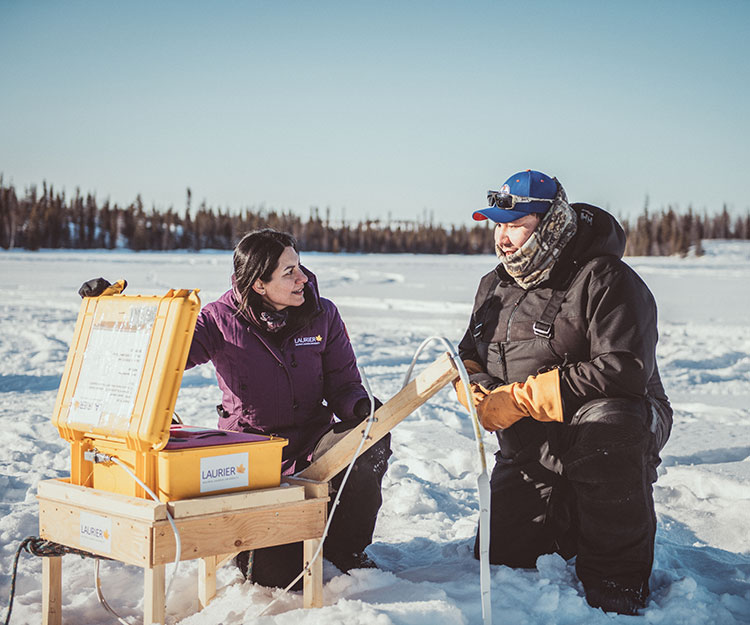
In September 2022, Afghan professors Sediqa Akbari and Rohina Zaffari were able to re-engage with their research thanks to support from the Scholars at Risk Program and their sponsor Dr. Bree Akesson, associate professor in the Faculty of Social Work and Canada Research Chair in Global Adversity and Well-Being. Their research collaboration is an extension of one that began in 2016 when Akesson was invited to co-lead a study of psychosocial well-being in Afghanistan. At that time, Akesson worked with Akbari and Zaffari in Afghanistan, interviewing both men and women for the study. Their award winning research resulted in Kabul University opening its first counseling centre. Both Akbari and Zaffari were forced to flee Afghanistan and now safely live in Canada. They are working with Akesson as part of her Global Adversity and Well-Being Research Group.
In a paper published in the journal Frontiers in Immunology, Associate Professor of Health Sciences and Biology Dr. Stephanie DeWitte-Orr reported the first evidence that a nucleic acid produced by viruses – long double-stranded ribonucleic acid (dsRNA) – can be used to target and shut down the spread of illness in healthy and cancerous cells. Previously, this strategy was only known to be effective for invertebrates – animals without backbones – and plants. DeWitte-Orr is working with industry partners to move her discovery from the laboratory to human use. Within the next year, DeWitte-Orr plans to begin pre-clinical trials, exploring its potential to treat cancerous tumours and respiratory viruses, as well as lower back pain, alongside Laurier Associate Professor Dr. Diane Gregory.
Laurier excels at preparing people for whatever challenges the future brings by expanding the range of credentials to address the needs of people at all stages of life and career and to enhance lifelong learning.
The Faculty of Music has launched a sector-leading program to provide the foundational knowledge in topics such as financial literacy, royalties, licensing, production, touring and marketing that musicians, composers and other music graduates need to be successful in the music business scene. The online, two-credit undergraduate certificate is open to all Laurier students and the courses have been developed in an exclusive partnership with Music Canada and CONNECT Music Licensing.
In September 2023, Laurier will welcome its first cohort in a new and unique thesis-based Master of Science program in Health Sciences. The program encompasses two fields of study: Molecular and Medical Sciences, and Community, Public and Population Health. The two-year degree program is designed as a research-intensive program to prepare students for careers in research, policy and the broader health sector.
In 2023, Laurier celebrated the 25TH anniversary of offering programming to lifelong learners in the community. In 2022–2023 the Office of Continuing Education delivered five multi-week courses and 18 public lectures to over 800 lifelong learners from across Waterloo, Kitchener and Brantford.
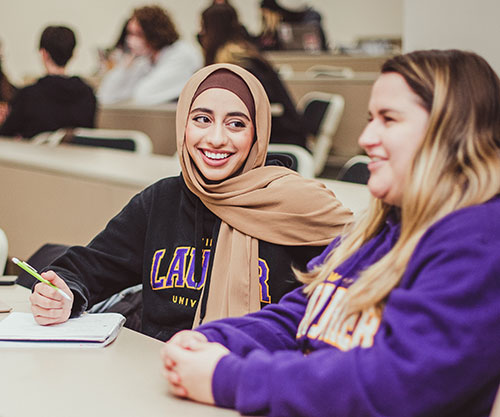
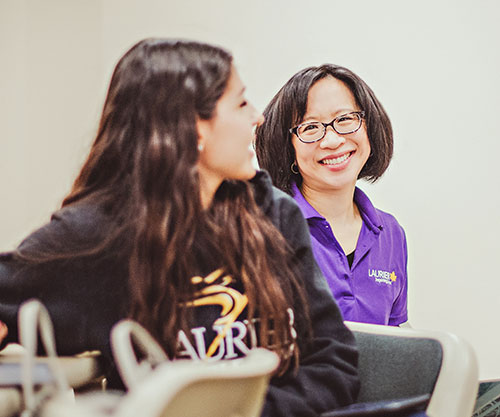
Laurier excels at preparing people for whatever challenges the future brings by developing a range of competencies (knowledge, skills, and attributes) that lead to innovative and creative thinking, collaboration, adaptability, good judgement, ethical action and leadership.
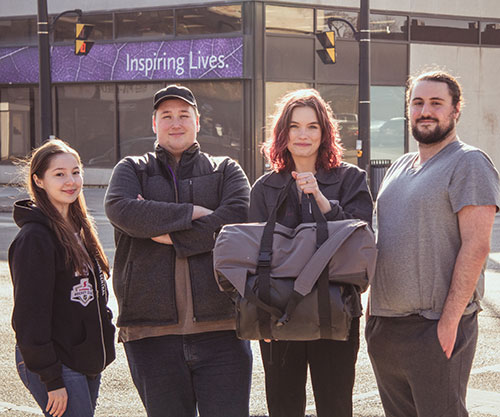
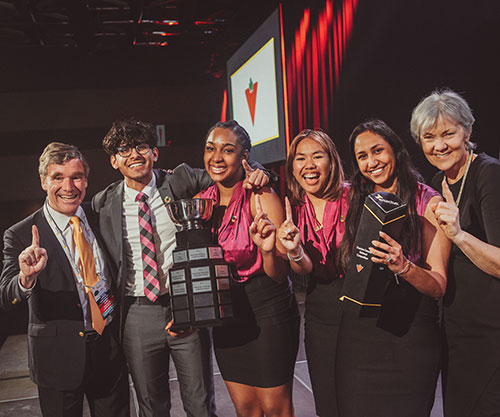
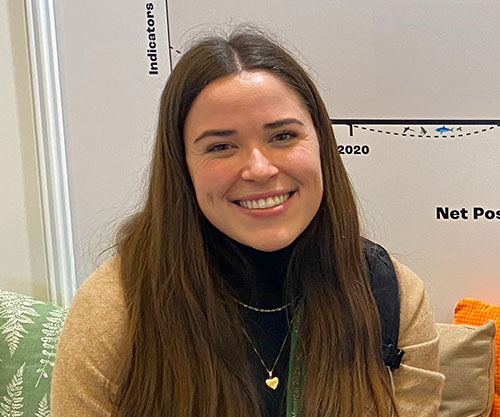
With the help of instructor Dr. Stephen Fernandez, third-year students in Laurier’s User Experience Design program created a storage pack designed for individuals experiencing homelessness to hold their belongings, store food and use as a sleeping bag. The bags, called Nurture Packs, were created out of a concept devised in Fernandez’s Maker Lab class, where students learned about the critical making process and how design can encourage a deeper understanding of the issues and challenges people face. During the winter term, the students hosted two well-attended workshops on the Brantford campus for Laurier community members to learn about challenges the unhoused population faces and to learn about constructing Nurture Packs. The group aims to expand the workshops to the Waterloo campus in the 2023–2024 academic year.
Laurier’s Enactus team claimed the national title at the Enactus National Exposition in May 2023, beating out 44 teams from across Canada. Laurier’s team will represent Canada at the World Cup in the Netherlands in October. Enactus is a global network of student leaders and changemakers using entrepreneurship as a catalyst for positive social and environmental impact. In addition to winning the national title, Enactus Laurier received the 2023 Hazelview Sustainable Cities Project Accelerator Best Project prize for the work of Kuponya Innovations, founded by third year political science student Jordan Prentice. Kuponya Innovations creates sustainable, climate resilient housing solution for Indigenous communities in Canada’s North. Enactus Laurier’s President Zander Smith also received the Enactus Student Leader of the Year award.
Tatyana Feiner, a Master of Environmental Studies student, represented Laurier at COP15 of the United Nations Convention on Biological Diversity in Montreal, in December 2022. COP15 concluded with the historic adoption of the Kunming-Montreal Global Biodiversity Framework (GBF), which sets out an ambitious pathway to reach the global vision of a world living in harmony with nature by 2050. She was one of more than 10,000 delegates from 196 countries who came together to help inform the agreement that focuses on halting ongoing biodiversity loss and ensuring a livable planet for future generations. Feiner’s thesis examines climate and biodiversity policy in a Canadian context. She attended as a representative of the Canadian Council on Ecological Areas with her thesis co-supervisor, associate professor and John McMurry Research Chair in Environmental Geography, Christopher Lemieux.
Fourth-year Bachelor of Business Administration student, Catherine Zhang, won the 2022 Best First-Time Filmmaker Award at the Cannes Shorts festival in Cannes, France. The 16-minute film, called Moving On, examines the complexity of family relationships, homophobia and generational trauma. Zhang, who co-wrote and co-directed the film with her friend Gwynneth Lee, a student at York University, credits her business studies at Laurier for preparing her for film projects – particularly pitching ideas to investors.
Laurier excels at preparing people for whatever challenges the future brings by augmenting experiential opportunities that encourage reflection, expand knowledge, develop skills, clarify values and heighten self-awareness for all students.

Fourth-year User Experience Design program student Fatima Khan was named Laurier’s 2022 co-op student of the year following a 16-month term at the Ontario Digital Service, a division of the provincial government that works to improve online government services for Ontarians. As a product design co-op student, Khan provided user experience research, design and support to many high-impact, public-facing initiatives, including several projects tied to the Ministry of Health’s COVID-19 response. When her co-op term finished in August 2022, Khan accepted a senior user experience design position at the agency. In her new role, Khan is digitizing and modernizing data collection and compliance processes for the Ontario Ministry of Agriculture, Food and Rural Affairs and improving emergency management practices for the Ministry of Environment, Conservation and Parks.
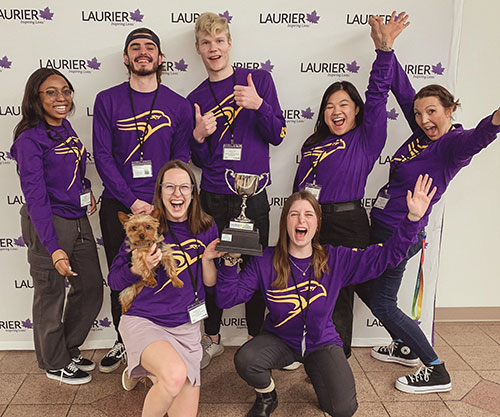
In the Faculty of Human and Social Sciences, Laurier’s Leadership program offers fourth year students the opportunity to use the knowledge and skills they’ve learned in lectures and readings in deliberate practice exercises. The goal is to teach students to overcome their limitations and circumstances and manage unexpected challenges. An example of a challenge includes small groups tasked with defusing a fake explosive in less than 25 minutes. Instructors add unexpected distractions such as loud music and turning the lights off. Students from the class participated in the virtual Collegiate Leadership Competition where more than 225 students from postsecondary institutions around the world compete. Laurier’s Brantford campus hosted this year’s Canadian invitational in-person competition in One Market in March under the leadership of associate professor Dr. Kris Gerhardt and assistant professor Dr. Lisa Kuron.
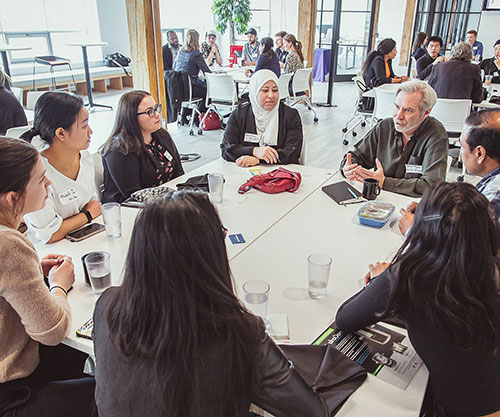
In April 2023, Laurier hosted Downstream – a speed networking event hosted by Water Canada magazine. The event immerses early career professionals to expand their personal networks in the water sector. The event provided Laurier students an experiential opportunity to interact with like-minded students and professionals across Canada to learn about non-profit, governmental and research initiatives in the water sector. The event included a tour of Laurier’s Centre for Cold Regions and Water Science.
Laurier excels at preparing people for whatever challenges the future brings by leading the sector in environmental sustainability of our campuses and inspiring the incorporation of sustainable practices in society and the economy.
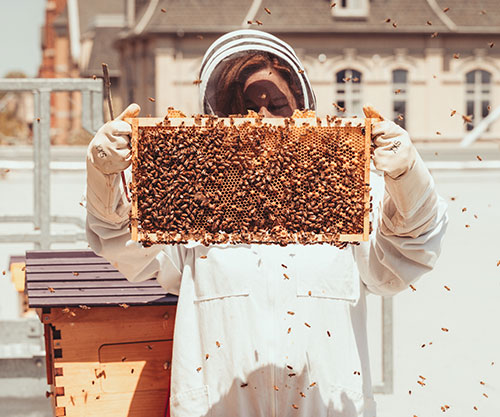
In 2022, Laurier introduced an apiary to the Brantford campus on the roof of One Market. The four bee hives atop One Market represent a thriving population of 320,000 honey bees. The Sustainability Office is working to have Brantford designated as a Bee Campus, creating more pollinator habitats to support not only the honey bees, but other native and non-native pollinator species. Christine McKinlay, associate director of development, manages the apiary. McKinlay started beekeeping as a hobby during the pandemic and works with students to support the Brantford apiary.
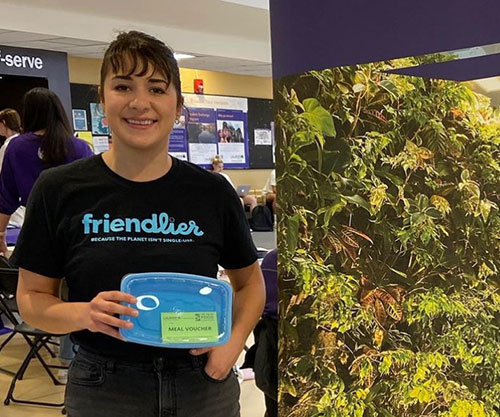
Laurier was the first university in Canada to adopt the Friendlier reusable container program on its Waterloo campus. The Sustainability Office, Graduate Students’ Association and the Students’ Union jointly led this effort to reduce single use plastics on campus. The reusable food containers use a mobile app to track container usage and issue refunds for the nominal 50 cent to one dollar user deposit.
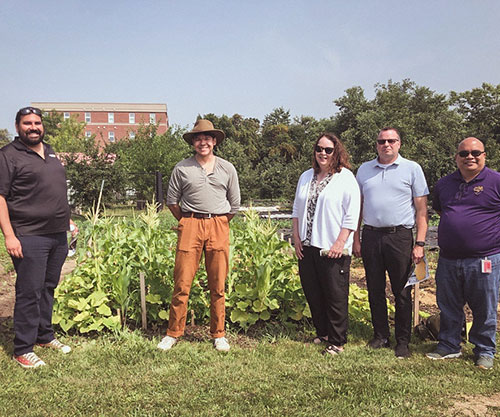
For the fifth year in row, Laurier was named one of Canada’s Greenest Employers by Mediacorp Inc. The national recognition reflects Laurier’s continued commitment to its sustainability-focused programs and initiatives, progress in reducing its carbon footprint, and the degree to which sustainability has become a part of Laurier’s workplace culture, spanning operations, academics and community partnerships.
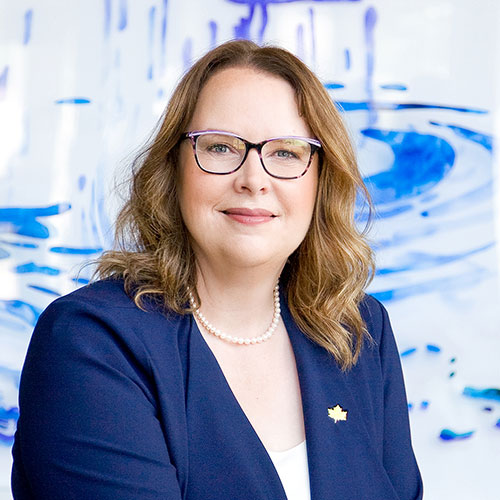
“It is the quality and engagement of our people that make Laurier an exceptional hub of teaching, learning, research, and community.”
Deborah MacLatchy